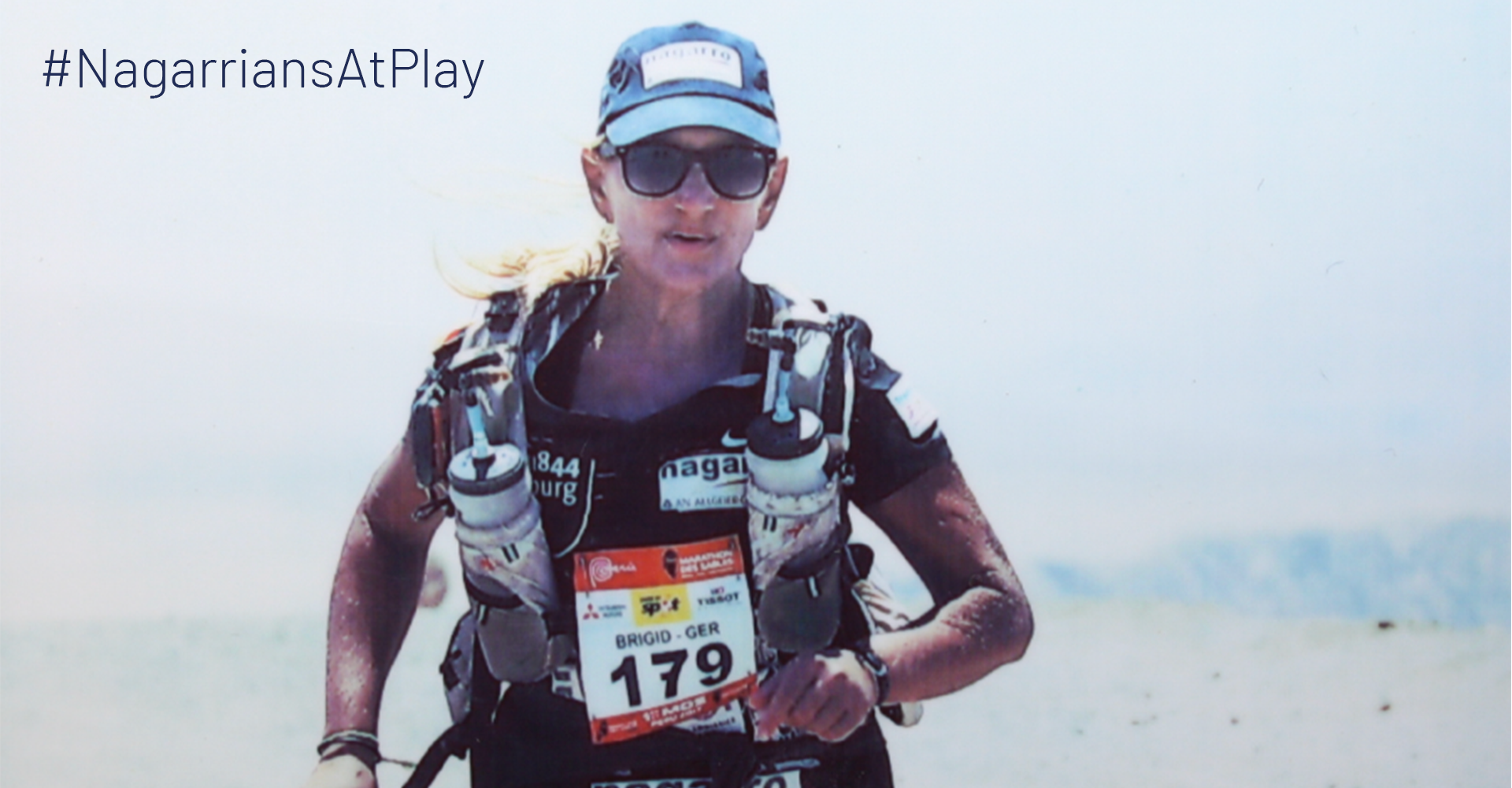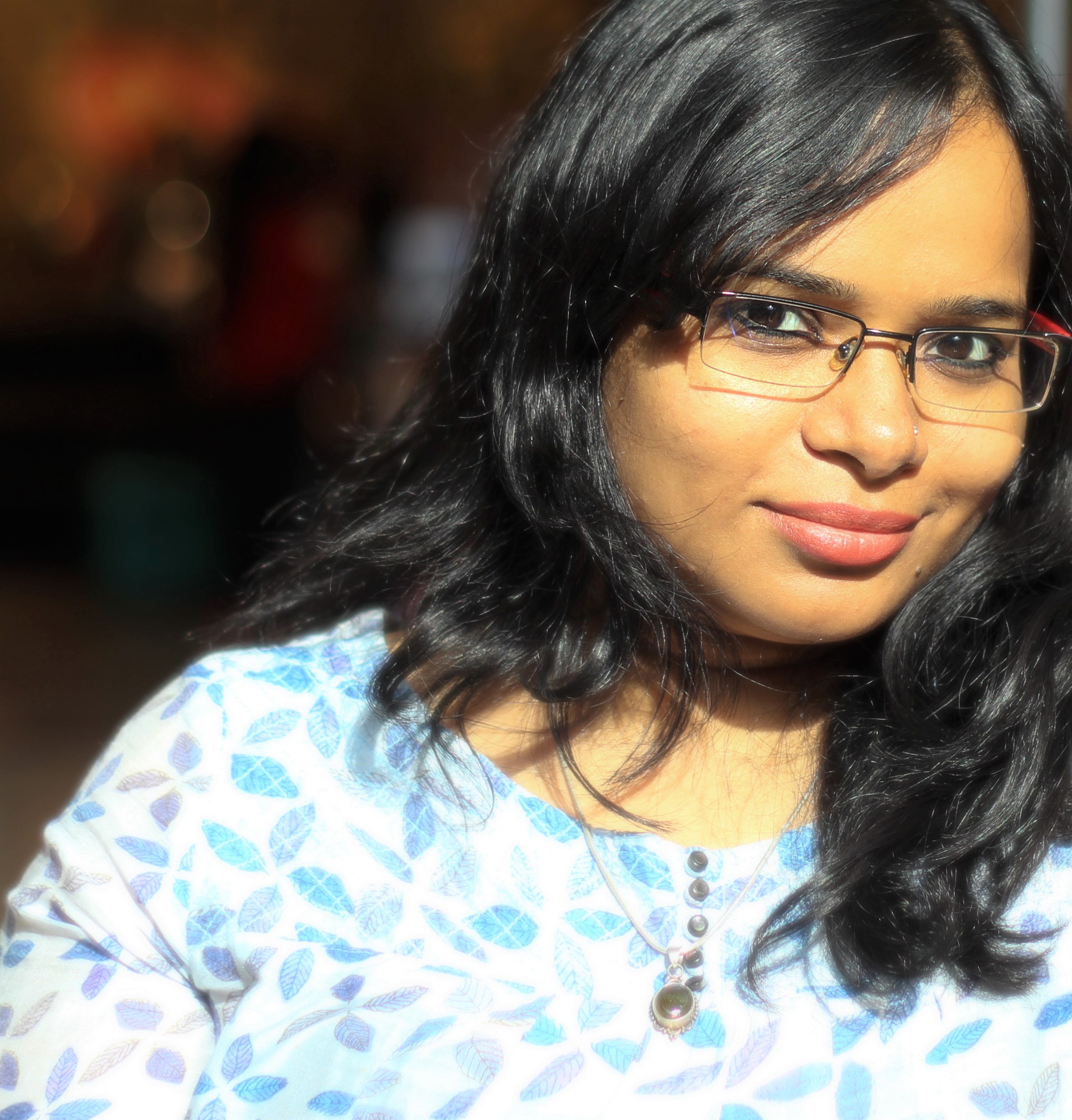There are marathoners, and then, there are ultra-marathoners.
Meet 56-year-old Brigid Wefelnberg based out of Freiburg, Germany: a translator/business coordinator at Nagarro by profession, and an ultra-runner and extreme race enthusiast by passion.
Brigid has been running since the past 15 years, and has participated in several ultra-marathons across the globe including the 1000 km race across the Sahara, 530 km across the Australian outback, 273 km across the Grand Canyon, and 160 km race across the Himalayas. She has also authored “The Track: My long path to becoming an extreme runner”, a logbook of sorts, where she recollects her extreme running trips.
Currently competing in the longest virtual race ever (to keep her gait even during this COVID crisis), Brigid talks to us about her ups and downs, and how she manages to keep her back straight even in the toughest of times.
It’s great to catch up with you, Brigid! So, first things first: What made you realize that you are good at running?
I started running early when I was only 6; it was track and field. I ran the 50- and 100-yard dashes, as I was good at sprinting. But it wasn’t till I ended up settling in the Black Forest and speed hiking there, and eventually running longer and longer stretches, that I realized I could actually take this to a higher level.
What is the maximum distance you have covered? And what has been the most difficult terrain ever?
The longest distance I ever covered was 1021 km in the Sahara Desert in Mauritania in the north of Africa. However, the most difficult terrain till date was undoubtedly the 890 km-long TransPyrenea across the entire border between France and Spain, from the Mediterranean Sea to the Atlantic. Those mountains were the toughest ever.
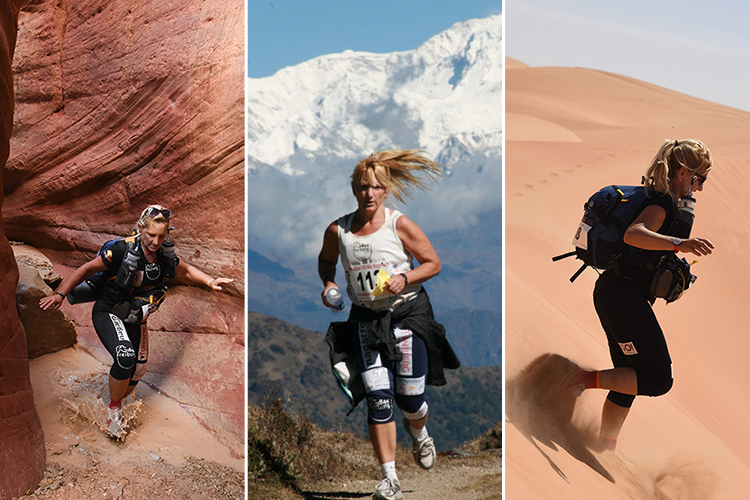
L to R: Grand to Grand Ultra (the Grand Canyon), Mt. Everest Challenge (the Himalayas),
The Gobi Challenge (the Gobi Desert)
You were one of the only two women to have done the 1000 km non-stop extreme runner’s race across the Sahara. How was the experience?
Yes, it was a great honor to be one of only two women invited to do this crazy race! This was the longest stretch I have ever done non-stop, with only 2 hours of sleeping breaks for the entire 16 days. That apart, I was also running in the most hostile environment ever. During the day, the temperate would soar to almost 50 degrees, while at nights, it would plummet to almost zero. There were no roads or markings either; the only way to orient ourselves was through GPS! There were extremely high dunes and steep, rocky cliffs to climb. We had to carry everything we needed (besides extra water) on our backs for 100 km. It was simply exhausting!
But I did it! And boy, was it worth it! I remember standing on a very high dune with a cliff on the side of it. By the time I climbed it up at night, I was just drained. But what awaited me at the top is beyond description. It was a full moon and I saw the most stunning view that I have ever seen across the Sahara. A clear night with the most amazing starry sky. I am so grateful for moments such as these. It is worth all the pain, lack of sleep, losing weight and exhausting myself.
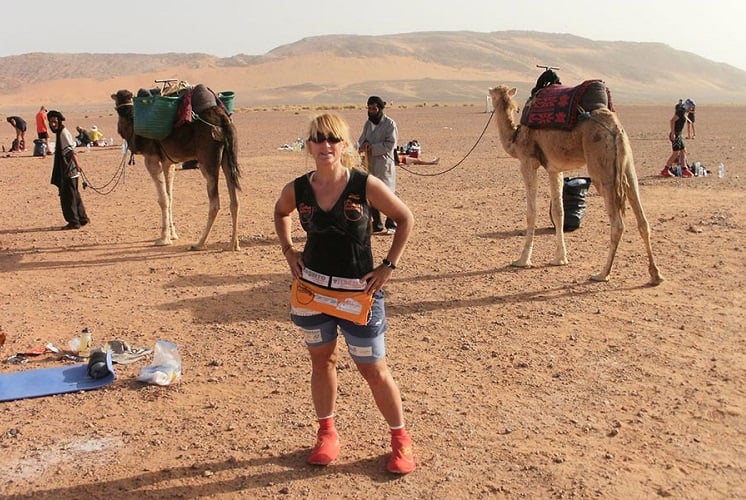 Posing amidst the nomads during the Mauritanian Sahara Desert race
Posing amidst the nomads during the Mauritanian Sahara Desert race
(Marathon des Sables)
Have you been able to translate any learning from your passion into your work at Nagarro?
Yes! In my sport, you learn to stick out for very long, difficult periods with no checkpoint or milestone in sight. It is in those moments that you have to keep your wits about yourself and stay strong. As you keep going and keep moving, you see the next checkpoint and all the difficult, monotonous, seemingly senseless moments pay off big time! Likewise, I do find so many parallels at work too.
In fact, it works the other way around too. Sometimes, when I am at a race in the middle of nowhere and temporarily lose my motivation, I remember the times I have stuck it out at my desk, just to achieve something valuable – and voila, I am suddenly in another uplifting, motivating mode.
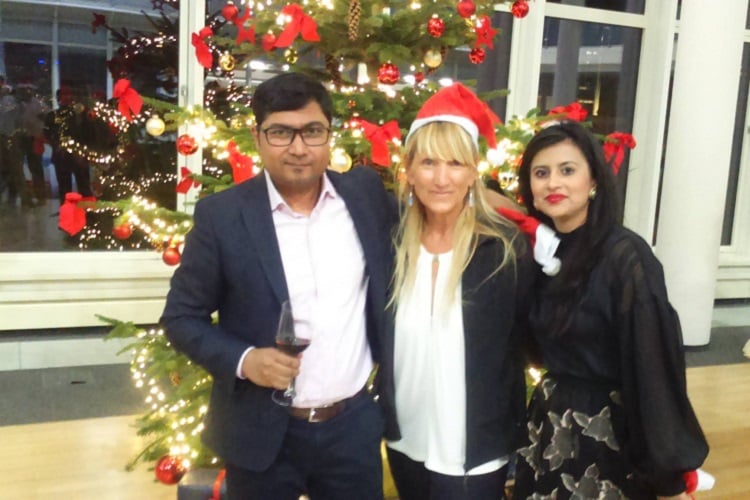
With Nagarro colleagues at a Christmas Party in Frankfurt
How have you managed to balance your work and hobby? Is there enough flexibility to follow your passion?
Yes, I am very blessed to have flexibility in my everyday working life, all thanks to the working culture Nagarro has. I have had a tremendous amount of support from everyone at Nagarro, especially from all my colleagues!
Ever since it became clear that I would take my sport to the highest international level, I was entrusted with a mostly home office position in 2007, with weekly days in the Frankfurt office. Of course, this helps that I am available during the peak time when most of the work usually comes in. Trust plays a big role in my position and I thank Nagarro for giving me that.
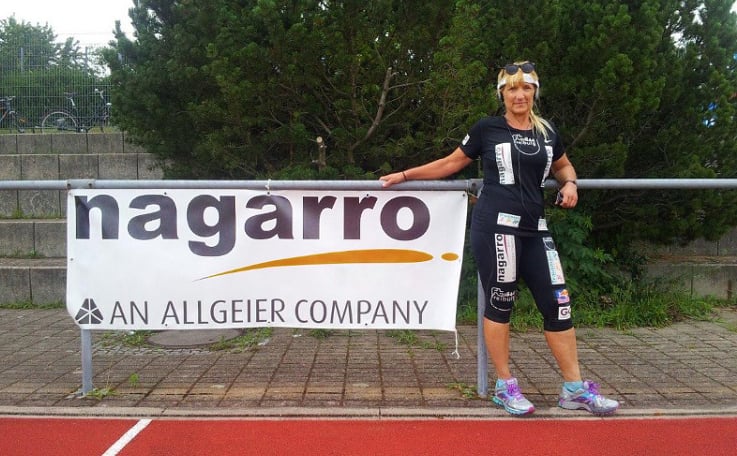 At the Nagarro CSR event in Freiburg, a 24-hour race for children's rights
At the Nagarro CSR event in Freiburg, a 24-hour race for children's rights
That’s amazing! Tell us that one turning point in your life. When you actually felt that yes, this is what I am going to pursue for the rest of my life.
Well, there was a series of experiences that made me look at the world and my sporting life differently. My extreme races take place in some of the remotest and poorest regions of the world. When I saw and experienced some of the most horrid and shocking living, schooling and social conditions in countries like Morocco, Bhutan and Cambodia, I decided that wherever I have a race, I will also carry out a local charity project to support the community there.
With the help of the press and my own newsletter, I have been able to get a lot of monetary and material donations. The encounters I have during these projects convinced me very quickly that, along with the races, I will be doing this for a long time!
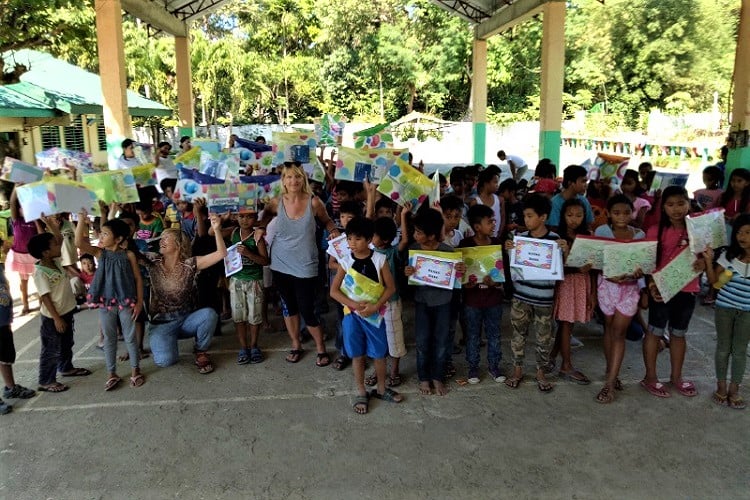 At an elementary school in Saud, Philippines
At an elementary school in Saud, Philippines
Have you ever lost hope that you would not be able to complete a race?
Yes, during the 890 km TransPyrenea, I got a virus after 450 km, way up in the mountains. I had a bad stomach, fever and felt very queasy. I got scared as I was so far up in the mountains in the middle of nowhere and it was freezing and snowing. I was so confused, and I normally don’t let the circumstances get the better of me – but here, due to the winter-like conditions and my weak physical state, I knew it was better to stop and not risk any damage to my health. It is a bitter pill to swallow even now, but that one time, something told me that I needed to stop, so I did.
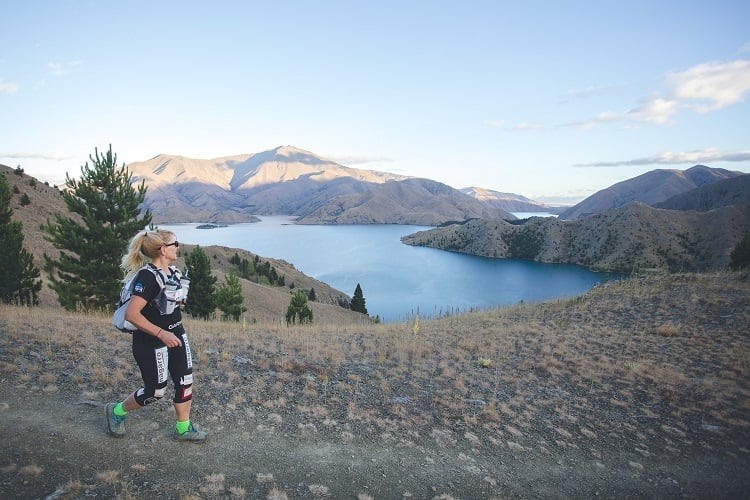
Running the TransPyrenea ultra-marathon
Indeed, it’s better to be safe than sorry. Moving on, when you are in the midst of a difficult terrain, what is that one thought that keeps you going?
I actually love difficult terrains, so I’m usually on cloud nine and in my elements! But if I'm feeling physically or mentally weak (but not sick or injured), then I simply remember how devastating it would be to just give up a race without a real, tangible reason. I am well-aware of how I will feel after crossing the finish line of an incredibly difficult race – it is the greatest joy I can ever get! (Well, apart from having my two daughters😊)
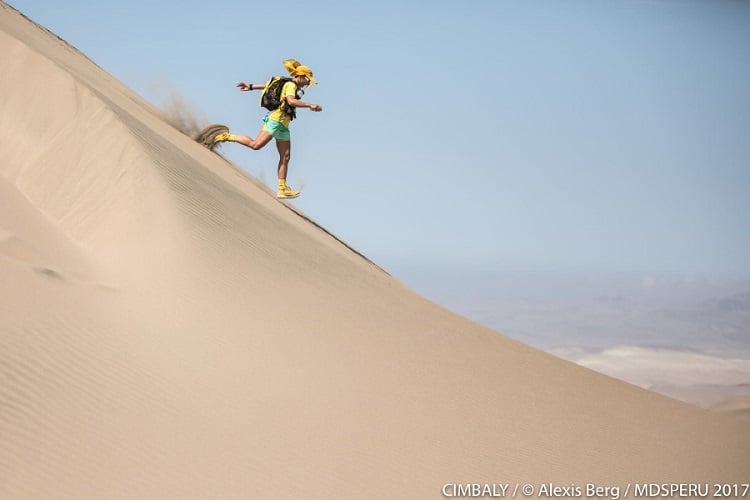 In the MDS Peru marathon across the Ica desert
In the MDS Peru marathon across the Ica desert
Absolutely! How has your passion helped you develop your emotional well-being?
I am fortunate to be in good mental and physical health. I have been able to train diligently through the years and reach the highest international level in my sport. This, and knowing that I have been able to take care of my family, job and health at the same time, have played a huge role in my emotional well-being and peace of mind.
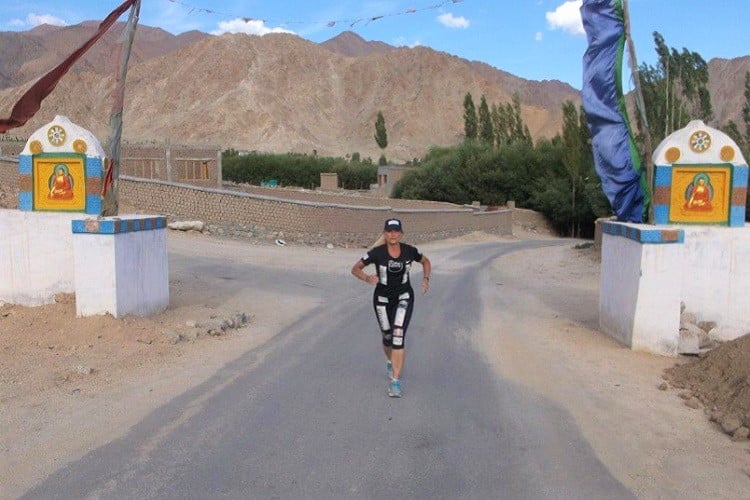 Training before a race
Training before a race
And now, you are running the Great Virtual Race across Tennessee. How does it work exactly?
Yes, I am currently running the longest virtual race out there! The Great Virtual Race Across Tennessee is a 1000 km race done by ultrarunners around the globe in their respective countries. I do all my normal real training runs here in the Black Forest and measure the distance with a running watch. At the end of each training unit, I enter the total kilometres I ran into the race base. Then, I can see on the map where I am in Tennessee and what my current standing is.
I run long runs between 20 and 50 km. As of yesterday, I had finished one length of Tennessee (1021 km) and 'turned around' to cover the entire distance again! I have already covered a third of the way back across Tennessee and will complete the 2042 km mark by my birthday on August 22nd.
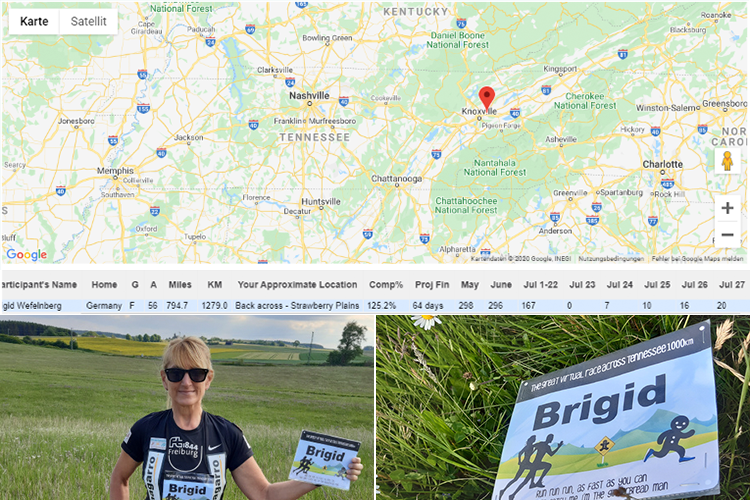
Participating in the virtual race
Wow! Is there any advice, suggestions to your fans?
Yes, I cannot stress enough how important it is to find one’s passions and talents! Imagine, when you are 80 years old and look back, what will you have to say about what all you did in this one life? What dreams and goals did you go after, what fabulous experiences did these allow you?
Speaking of fans, I’d like to use this opportunity to thank all my wonderful colleagues and supporters at Nagarro, not only from my sport, but also from work. This year, I celebrate 15 years at Nagarro and 15 years of extreme sports – thanks so much, and love to all of you!
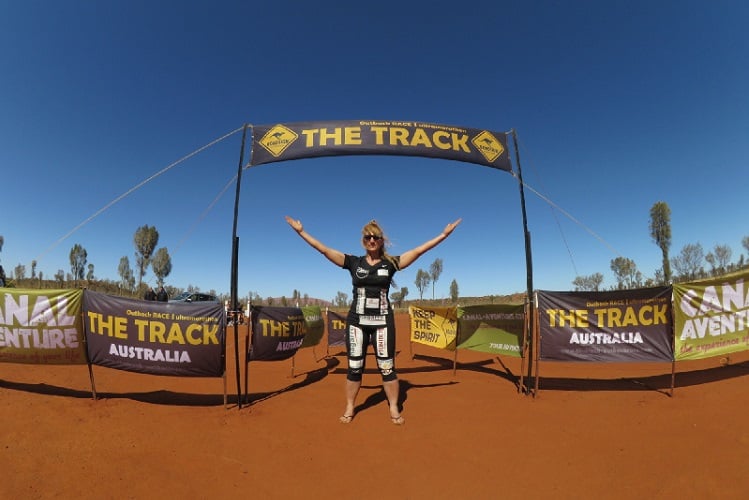 At the finish line of the 530 km THE TRACK Outback ultra marathon in Australia
At the finish line of the 530 km THE TRACK Outback ultra marathon in Australia
Before we wrap up, is there any memorable quote that keeps you going?
I love quotes, but the best one is from Oscar Wilde, who said:
“Live! Live the wonderful life that is in you, let nothing be lost upon you. Always be searching for new sensations. Be afraid of nothing.”
Also, I have a very simple quote I made up myself to quit all negative thoughts and possible excuses I might have in my mind in difficult moments: “GO!!”
Thank you, Brigid. It’s been a pleasure to know you 😊
NagarriansAtPlay is a series that showcases Nagarrians following their passions. In this blog series, we bring to you some of our remarkable colleagues who have made it big globally, in their respective fields, and have inspired many to follow their dreams.


